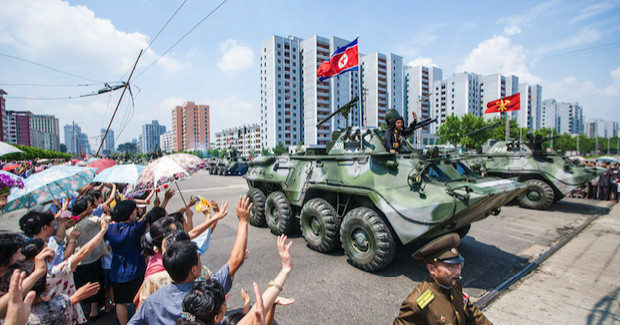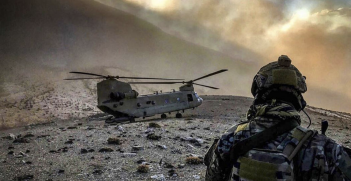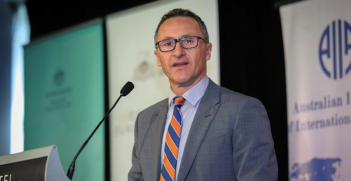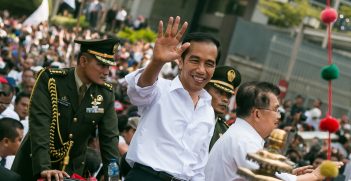North Korea Pays Lip-Service to UN

North Korea has long maintained a reputation as one of the world’s worst human rights violators. This reputation makes its surprise adoption of dozens of United Nations Human Rights Review recommendations—five years after their publication—all the more confounding. What motivated the sudden change?
Among other abuses, North Korea is routinely accused of severely restricting civil liberties, torturing and executing political dissidents, and inducing mass starvation. Furthermore, it rejects cooperation with international human rights mechanisms, including the UN Special Rapporteur for Human Rights in North Korea, calling them politically motivated.
In December 2009, however, North Korea participated in its first Universal Periodic Review of Human Rights (UPR), a UN process in which states review one another’s human rights records and recommend ways to improve implementation. Although North Korea did not accept any of the 167 recommendations it received, it praised the UPR as “the most innovative and cooperative mechanism in the [Human Rights] Council”.
In February 2014, a UN Commission of Inquiry (COI) issued a landmark report concluding that North Korea’s human rights abuses likely constituted crimes against humanity. The following May, just before its second scheduled UPR, North Korea announced that it would belatedly accept nearly half of the recommendations from 2009. Then in the following September, North Korea also accepted nearly half of the recommendations from its second UPR. Given North Korea’s track record on human rights, this was a surprising development.
Why did the DPRK take part?
Rather than utilise the UPR for capacity building, North Korea has instead harnessed it to divert attention from its human rights violations, attempt to boost its international image, advocate for the primacy of state sovereignty over universal human rights, and challenge the legitimacy of country-specific human rights mechanisms like the COI and special rapporteur. It has consistently accepted low-cost recommendations, rejected more specific policy changes, and implemented accepted recommendations on a very limited basis.
Given the dearth of venues for engaging North Korea on human rights, as well as the UPR’s centrality in the United Nations Human Rights Council (UNHRC) structure, it is especially important to understand its motives and behaviour in the UPR and how the UPR can and cannot foster human rights in North Korea.
Human rights spin
The UPR’s reliance on self-reporting affords North Korea greater control of its human rights narrative than the COI or special rapporteur. North Korea positively depicts its human rights record while denying or ignoring violations. The interactive dialogue’s compressed format and the absence of a consensus requirement leave little room to adjudicate competing truth claims. This allows each claim to seem equally valid irrespective of the claimant’s credibility and creates space for North Korea to contest settled human rights norms by selecting which recommendations to accept or reject, exchanging plaudits and weak recommendations with friendly states, and naming and shaming political rivals.
By supporting countries with whom it shares similar human rights views, making recommendations that they accept, and receiving supportive statements by political allies, North Korea can foster the notion that it is serious about upholding human rights and that its positions represent a broader movement. For example, in a statement protesting against the 2014 UNHRC resolution, North Korea cited its participation in the UPR as evidence of its commitment to human rights.
In November 2012, the official newspaper Rodong Sinmun lambasted South Korea’s National Security Law, which criminalises support for North Korea. It stated: “The recent 2nd Circle [sic.] of the Universal Periodic Review at the UN adopted a decision in which it advised the South Korean authorities to abolish the evil ‘Security Law’”. In reality, individual states—not the UN—endorse recommendations (in this case, North Korea itself). Invoking the UPR allows North Korea to exaggerate international support for its human rights positions, thereby reinforcing the utopian narrative it tells to both domestic and international audiences.
The UPR also affords North Korea a platform for promoting its sovereign-centric human rights positions, which include replacing country-specific human rights resolutions and mandates with the UPR. For example, in March 2010, a DPRK Ministry of Foreign Affairs spokesman denounced the UNHRC’s resolution on North Korea and the country-specific special rapporteur.
Domestic motives may also have shaped North Korea’s participation in the UPR, though this assertion is necessarily somewhat speculative. Given North Korea’s support for the UPR prior to its first review, it seems unusual that it did not accept any recommendations in 2009, even relatively costless ones that might have helped improve its reputation.
Moreover, North Korea consistently ignored questions in the General Assembly about its failure to accept recommendations rather than challenge them. North Korea’s tendency to categorically deny human rights violations makes its initial silence on the 2009 recommendations puzzling, particularly since it adopted clear positions on similar recommendations in 2014.
A silver lining
Nevertheless, North Korea’s UPR participation is a positive development. Its written and oral statements establish a base of factual claims by which to measure its future human rights progress. Its willingness to accept some specific recommendations suggests opportunities for multilateral cooperation to nudge its human rights toward international standards, particularly given Kim Jong-un’s apparent interest in economic development.
Since the UPR imposes identical requirements on all states, it has the potential to hold North Korea to account for its claims before the international community and identify areas where the international community can cooperate with North Korea to improve its human rights practices. The UPR’s non-confrontational approach can facilitate ‘principled engagement’ with North Korea by shifting the focus away from regime change and punishment toward incremental human rights improvements and technical implementation under the rubric of assisting North Korea’s sovereignty.
Maximising the UPR’s effectiveness requires an international consensus on human rights standards. When North Korea uses the UPR to challenge those very standards and undermine the factual basis for assessing its human rights record, a strong and credible investigatory and accountability mechanism is needed.
North Korea’s sudden about-turn on the UPR in 2014 and willingness to follow up on recommendations from the 2009 UPR soon after the release of the COI report strongly support the complementarity of both processes. The UPR was never intended to investigate or punish human rights violations but instead to help states meet international human rights standards. North Korea’s participation in the UPR, though an encouraging development with potential dividends for human rights, complements but cannot supplant the fact-finding and accountability mechanisms of the special rapporteur and COI.
Jonathan T. Chow is assistant professor of international relations at the University of Macau. He holds a Ph.D. and M.A. in political science from the University of California, Berkeley.
This is an abridged version of an article published in the most recent Australian Journal of International Affairs (Volume 71), ‘North Korea’s participation in the universal periodic review of human rights’. (AIIA members have free access to the AJIA.)
This article is published under a Creative Commons Licence and may be republished with attribution.





